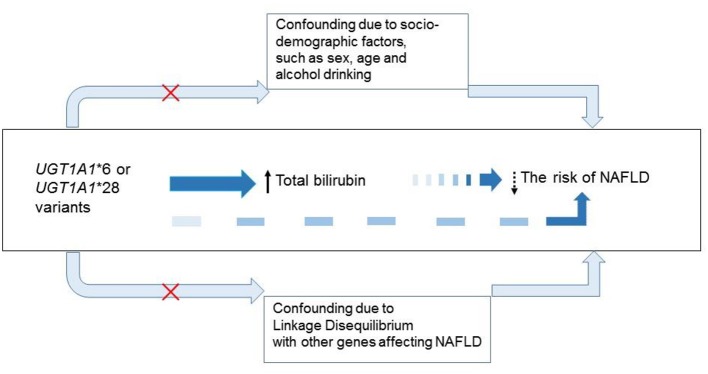Figure 1.
Application of the Mendelian randomization framework in assessing causal role of bilirubin in NAFLD. According to the Mendelian randomization framework, if a genetic variant (UGT1A1) reliably governs a disease risk factor (Bilirubin), and there is a causal association between the risk factor (Bilirubin) and disease end-point (NAFLD), then the genetic variant (UGT1A1) should itself be associated with the disease end-point (NAFLD). Confounding factors, such as socio-demographic and disease status may affect the total bilirubin levels and the risk of NAFLD by modulate other biological pathways, but do not affect the random distribution of UGT1A1*6 and UGT1A1*28 variants. UGT1A1*6 and UGT1A1*28 were also not in linkage disequilibrium with known genes (e.g., PNPLA3 and TM6SF2) that predispose to NAFLD.

